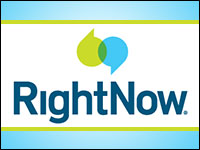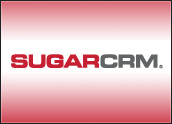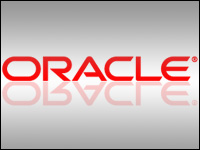
The Lithium Social Customer Suite is designed to help companies identify and manage a group of dedicated customers using social media channels. Referring to these types of social customers as “superfans,” Lithium helps companies turn them into advocates for their products and services.
With the advent of social media, customers have found new ways to connect with each other and discuss their customer service experiences. Because of this shift in customer service dynamics, managing customers is no longer a matter of simply maintaining a database, Phil Soffer, Lithium’s vice president of product marketing, told CRM Buyer.
Companies now need to track and communicate with customers who are connected, empowered and impatient, he explained.
“This is both a challenge and an opportunity,” Soffer said. “The challenge is that social customers can cause havoc, but the opportunity is that they can be amazingly effective at helping you market, sell and service your products. “
Social CRM platforms enable a company to respond very quickly to this opportunity by pushing out information about new products and methods, Shep Hyken, creator of The Customer Focus training program, told CRM Buyer.
Companies can also send more targeted posts to the customers who will be most interested or affected, he added.
Leveraging Customer Communication
Lithium seeks to provide its clients with a way to leverage the conversations their customers are having on social media, Soffer explained.
Lithium’s functionality offers companies a way to manage the interactions their customers are having on social media channels such as Twitter and Facebook, along with company websites, he added.
A company can then integrate the most important data and processes with its existing CRM tool. Lithium also tries to integrate and utilize the best resources for each social media channel, Soffer continued.
“For example, if you’ve got customers answering questions on your community, we make sure that other customers who might be using Facebook or Twitter get the benefit of the smartest customers from your community,” he pointed out.
Companies definitely need to embrace social media as a method to build communities of customers and stay connected with them, Hyken said. Even companies that had initially viewed social media networks with skepticism are now starting to recognize the connection with business concerns.
“Today more companies have finally accepted it as a viable means of communication. It helps to create a community,” he emphasized.
Other social CRM platforms also focus on community building, Brent Leary, cofounder and partner of CRM Essentials, told CRM Buyer, as it helps them build out their social networks.
“Lithium is definitely a competitor, “Leary said. “They’ve also added a mobile component.”
With Lithium Mobile, users do not have to be sitting in front of a laptop to access social networks and communities. They can access them with their mobile devices, he said.
Social CRM and Call Centers
“We can escalate issues that come in from the community, Twitter or Facebook so they’re tracked by the same software that tracks issues in your call center,” Soffer said.
Call centers will not be disappearing, in spite of the advent of social CRM, Hyken predicted. Customers still like having the option to be able to reach a live person, especially for high-end or complex products.
Managing Social Customers the Right Way
Management of social customers is both a technology issue and a process issue, Soffer opined. To help deal with these dual challenges, Lithium equips its clients with the tools they need to moderate and direct user-generated content.
Most importantly, Lithium teaches clients how and when to exercise control over their social customers so they do not turn off a potentially powerful resource.
“Companies that exercise heavy-handed control disempower their customers in a way that prevents them from realizing the benefits of social CRM,” cautioned Soffer.
Community Health Index Score and Other Analytics
Social customer researching and social CRM analytics capability is another significant component of Lithium. In addition to various types of social CRM metrics, Lithium touts its Community Health Index Score (CHI) as an important metric, said Soffer.
“The CHI measures the vibrancy of the community by tracking community growth, usefulness of the content, traffic, responsiveness and topic interaction,” he explained.
Lithium enhanced its social CRM analytics capabilities with the acquisition last year of Scout Labs, a social media monitoring and analytics company. This is a strong point because the “mountainous” amount of information coming directly from customers adds to the sheer volume of social data that companies need to consider, Leary pointed out.
Tools such as Lithium need to be capable of monitoring, analyzing and aggregating all that customer information and presenting it in an easy and manageable way, he noted, and for this reason, good analytics tools are becoming increasingly important.
Companies need to be monitoring social media networks to determine what people are saying about them so they can respond, Hyken pointed out. Social CRM allows companies to be more proactive because the technology gives them the ability to listen in real-time.
“The company needs to be listening,” he said.






















































